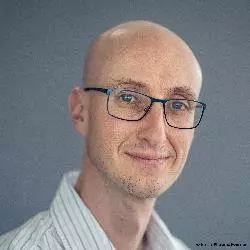
Fabien Lotte
https://scholar.google.fr/citations?user=bF8vZlQAAAAJ&hl=fr
Fabien Lotte obtained a M.Sc., a M.Eng. and a PhD degree in computer sciences, all from the National Institute of Applied Sciences (INSA) Rennes, France, in 2005 (M.Sc., M.Eng.) and 2008 (PhD). His PhD Thesis received both the PhD Thesis award 2009 from AFRIF (French Association for Pattern Recognition) and the PhD Thesis award 2009 accessit (2nd prize) from ASTI (French Association for Information Sciences and Technologies). In 2009 and 2010, he was a research fellow at the Institute for Infocomm Research (I2R) in Singapore, working in the Brain-Computer Interface Laboratory. From January 2011 to September 2019, he was a Research Scientist (with tenure) at Inria Bordeaux Sud-Ouest, France, in team Potioc (http://team.inria.fr/potioc/). He obtained an Habilitation (HDR) in Computer Science from the University of Bordeaux in September 2016. Between October 2016 and January 2018, he spent 1-year as a visiting scientist at RIKEN Brain Science Institute, Japan. He was also a visiting Associate Professor at the Tokyo University of Agriculture and Technology (TUAT) in 2019. Since October 2019, he is a Research Director (DR2) at Inria Bordeaux Sud-Ouest, France. His research interests include Brain-Computer Interfaces (BCI), human-computer interaction, pattern recognition and brain signal processing. He is part of the editorial boards of the journals Brain-Computer Interfaces (since 2016), Journal of Neural Engineering (since 2016) and IEEE Transactions on Biomedical Engineering (since 2021). He is co-specialty chief editor of the journal Frontiers in Neuroergonomics: Neurotechnologies and System Neuroergonomics, which he co-founded in 2020. He co-edited the books ”Brain-Computer Interfaces 1: foundations and methods” and ”Brain-Computer Interfaces 2: technology and applications”, published both in French and in English in 2016, as well as the book ”Brain-Computer Interfaces Handbook: Technological and Theoretical Advance” published in 2018 . In 2016, he was the recipient of an ERC Starting Grant (1.5 M€, project BrainConquest), the most prestigious research grant in Europe, to develop his research on BCI.
Fields of study:
- Artificial intelligence
- Machine learning
- Neuroscience
His primary areas of investigation include Brain–computer interface, Artificial intelligence, Machine learning, Human–computer interaction and Electroencephalography. His Brain–computer interface research is multidisciplinary, incorporating elements of Classifier, Multimedia, Statistical classification and Linear discriminant analysis. His study looks at the relationship between Artificial intelligence and fields such as Signal processing, as well as how they intersect with chemical problems.
His Machine learning research integrates issues from Feature extraction and Pattern recognition. His work in the fields of Virtual reality overlaps with other areas such as Protocol. Fabien Lotte works mostly in the field of Electroencephalography, limiting it down to topics relating to Speech recognition and, in certain cases, Communication Aids for Disabled, Independent component analysis and Finger tapping, as a part of the same area of interest.
His main research concerns Brain–computer interface, Artificial intelligence, Human–computer interaction, Electroencephalography and Brain activity and meditation. Within one scientific family, he focuses on topics pertaining to Mental image under Brain–computer interface, and may sometimes address concerns connected to Mental rotation. Fabien Lotte combines subjects such as Machine learning, Computer vision and Pattern recognition with his study of Artificial intelligence.
He interconnects Classifier and Training set in the investigation of issues within Machine learning. His Human–computer interaction research is multidisciplinary, relying on both Neuroergonomics and OpenVibe. The concepts of his Electroencephalography study are interwoven with issues in Neurophysiology, Speech recognition and Neuroimaging.
most often published in these fields:
- Brain–computer interface (65.87%)
- Artificial intelligence (44.71%)
- Human–computer interaction (37.98%)
His scientific interests lie mostly in Brain–computer interface, Artificial intelligence, Brain activity and meditation, Motor imagery and Mental image. His work deals with themes such as Cognitive psychology, Physical medicine and rehabilitation, Human–computer interaction, Control and Session, which intersect with Brain–computer interface. His Human–computer interaction study frequently draws connections between related disciplines such as Pleasure.
He has researched Artificial intelligence in several fields, including Video game, Machine learning and Pattern recognition. His study in Motor imagery is interdisciplinary in nature, drawing from both Algorithm, Data science and Personalization. His research in Electroencephalography intersects with topics in Neurophysiology, Speech recognition, Simulation and Benchmark.
Between 2018 and 2021, his most popular works were:
- Consensus on the reporting and experimental design of clinical and cognitive-behavioural neurofeedback studies (CRED-nf checklist) (60 citations)
- Monitoring Pilot's Mental Workload Using ERPs and Spectral Power with a Six-Dry-Electrode EEG System in Real Flight Conditions. (25 citations)
- Modern Machine-Learning Algorithms: For Classifying Cognitive and Affective States From Electroencephalography Signals (10 citations)
Fabien Lotte focuses on Brain–computer interface, Artificial intelligence, Electroencephalography, Neurofeedback and Cognition. His Brain–computer interface study combines topics in areas such as Control, Mental image and Human–computer interaction. Fabien Lotte works mostly in the field of Human–computer interaction, limiting it down to concerns involving Feature extraction and, occasionally, Neuroergonomics.
Fabien Lotte has included themes like Presentation duration, Machine learning, Decoding methods and Pattern recognition in his Artificial intelligence study. His Machine learning study combines topics from a wide range of disciplines, such as Algorithm and Affect. The various areas that Fabien Lotte examines in his Electroencephalography study include Simulation and Continuous signal.
Best Publications
-
6th USERN Congress Invited Speaker
Participate in the event 6th USERN Congress Invited Speaker
0.05
6th USERN Congress Invited Speaker
No items yet!
